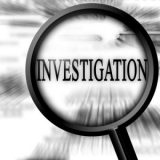The Prophet Muhammad(P) and the Slander of Epilepsy
The Prophet Muhammad(P) and the Slander of Epilepsy
Published on: Tuesday 20 Sep, 2005
By: administrator
Mohd Elfie Nieshaem Juferi
It is well-known that the polemics of the Christian missionaries and Orientalists where the character of the Prophet(P) ranges from the totally ludicrous to an outright lie and blasphemy. One such polemic is with regard to the allegation that the Prophet(P) suffered from epilepsy. This charge on the Internet is spearheaded by one Dr. Herman H. Somers, who claims that the symptoms of the disease were all present in the Prophet(P) because he used to lose consciousness, perspire, fall into convulsions and sputter. After recovering from such seizures, the claim continues, the Prophet(P) would then recite to the believers what he then claimed to be a revelation from God, whereas that was only an after-effect of the epileptic fits which he suffered.
Needless to mention, this allegation is not a new one, and has been addressed in the past by various Muslim scholars and intellectuals. In this general examination of this allegation, however, we seek to exonerate the Prophet(P) from this ludicrous charge, insha’allah. In this endeavour we have adapted the writings of M.H. Haykal, which we feel sufficiently addresses and refutes the charge. Additional elaboration of our own, in order to elucidate Haykal’s answer to the allegation of epilepsy, will be provided in the Notes & References section.
See: “Epileptic Symptoms” In The Biblical Prophets?
The Slander of Epilepsy[1]
To represent the phenomenon of Muhammad’s(P) revelations in these terms is, from the standpoint of scientific research, the gravest nonsense. The fit of epilepsy leaves the patient utterly without memory of what has taken place. In fact, the patient completely forgets that period of his life and can recollect nothing that has happened to him in the meantime because the processes of sensing and thinking come to a complete stop during the fit. Such are the symptoms of epilepsy as science has established them. This was not the case at all with the Prophet(P) at the moment of revelation, for his cognitive faculties used to be strengthened – rather than weakened -and do so to a superlative degree hitherto unknown by the people who knew him most. Muhammad(P) used to remember with utmost precision what he received by way of revelation and recited it to his companions without a flaw. Moreover, revelation was not always accompanied by paroxysms of the body. Much of it took place while the Prophet(P) was perfectly conscious, during his usual wakefulness. We have advanced sufficient evidence for this in our discussion of the revelation of the surah “al Fath” upon return of the Muslims from Makkah to Yathrib after signing the Pact of Hudaybiyah.
Scientific investigation therefore reveals that the case of Muhammad(P) was not one of epilepsy. For this reason very few Orientalists have upheld this claim and these turn out to be the same authors who upheld the charge of forgery against the Qur’an. Obviously, in charging Muhammad (P) with epilepsy, their motivation was not the establishment of historical fact but the derogation of the Prophet(P) in the eyes of his Muslim followers. Perhaps, they thought, propagation of such views would cast some suspicion upon his revelation, for it was precisely the revelation that came as a result of the so-called epileptic fits. This, of course, makes them all the more blameworthy and, from the standpoint of science, positively in error.
Return to Science
Had these Western Orientalists been candid, they would not have presented their non-scientific claims in the name of science. They did so in order to delude the ignorant who, ignorant though they be of the symptoms of the epileptic disease, are prevented by their own naivete from checking the Orientalists’ claims against the writings and opinions of the men of the medical sciences. A consultation of medical literature would have quickly exposed the errors of the Orientalists, deliberate or accidental, and convinced them that in an epileptic fit all the intellectual and spiritual processes come to an absolute stop. When in a fit, the epileptic patient is either in a ridiculously mechanical state of motion or on a rampage injurious to his fellow men. He is utterly unconscious, unknowing of what he himself does, or of what happens to him, very much like the somnambulant who has no control over his movements during his sleep and who cannot remember them when he wakes up. A very great difference separates an epileptic fit from a revelation in which an intense and penetrating consciousness establishes, in full knowledge and conviction, a contact with the supernal plenum that enables the prophet to report and convey his revelation. Epilepsy, on the other hand, stops cognition. It reduces its patient to a mechanical state devoid of either feeling or sensation.[2] Revelation is a spiritual heightening with which God prepares His prophet to receive from Him the highest and apodeictic cosmic truths that he may convey them to mankind. Science may eventually reach some of these truths and discover the secrets and laws of the universe. The rest may never become object of human knowledge until existence on this earth has come to an end. Nonetheless, these truths are apodeictically certain, furnishing true guidance to the earnest believer though they remain opaque to the ignorant whose hearts are locked and whose vision is dim.
Incapacity of Science in Some Fields
We would have understood and appreciated the Western Orientalists having said: “Revelation is a strange psychic phenomenon inexplicable in terms of contemporary science.” Such a statement would mean that despite its wide scope and penetration, our science is still unable to explain many spiritual and psychic phenomena of which revelation is one. This statement is neither objectionable nor strange. Science is still unable to explain many natural, cosmic phenomena. The nature of the sun, moon, stars, and planets is still largely a matter for hypothesis. These heavenly bodies are only some of what the human eye, whether naked or through the telescope, reveals to us of the cosmos. Many of the inventions of the twentieth century that we presently take for granted were regarded by our predecessors in the nineteenth century as pure fiction. Psychic and spiritual phenomena are now subject to careful scientific study. But they have not yet been subject to the dominion of science so that it could be made to reveal their permanent role. We have often read about phenomena witnessed by the men of science and ascertained by them without explanation in terms coherent with scientific knowledge. Psychology, for instance, is a science which is not yet certain of the structures of many areas of psychic life. If this uncertainty is true of everyday phenomena, the demand to explain all the phenomena of life scientifically must be a shameful and futile exaggeration.
The revelations of Muhammad(P) were phenomena witnessed by his Muslim contemporaries. The more they heard the Qur’an the more convinced they became of the truth of these revelations. Among these contemporaries were many of extreme intelligence.[3] Others were Jews and Christians who had argued with the Prophet(P) for a long time before, and they believed in his mission and trusted his revelation in every detail. Some men of Quraysh had accused Muhammad(P) of magic and madness. Later, convinced that he was neither a magician nor a madman, they believed in and followed him. Since all these facts are certain, it is as unscientific to deny the phenomenon of revelation as it is unworthy of the men of science to speak of it in derogative terms.[4] The man of science candid in his search for the truth will not go beyond asserting that his discipline is unable to explain the phenomenon of revelation according to the materialistic theory. But he will never deny the factuality of revelation as reported by the companions of the Prophet(P) and the historians of the first century of Islam. To do otherwise would be to fall under prejudice and betray the spirit of science.
Slander against Muhammad Is Argumentum ad Hominem
Such obstinate prejudice only proves the determined concern of its author to arouse suspicion in Islam itself. Such people have been incapable of arguing against Islam because they had found it sublimely noble, simple, and easy to understand, and realized that these qualities are the sources of its strength. They hence resort to the trick of the impotent who shifts attention from the great idea beyond his reach to the person advocating it. That is the argumentum ad hominem fallacy which every scholar should seek to avoid.[5] It is natural for men to concern themselves with ideas and not with the personal circumstances of their authors and advocates. Men do not give themselves the trouble to investigate the roots of a tree whose fruits they had found delectable, nor the fertilizer which had helped it to grow, as long as their purpose is not to plant a similar or better tree. When they analyze the philosophy of Plato, the plays of Shakespeare, or the paintings of Raphael, and find nothing objectionable in them, they do not look for blameworthy aspects in the lives of these great men who constitute humanity’s glory and pride. And if they try to fabricate charges against these persons, they will never succeed in convincing anyone. They only succeed in betraying themselves and exposing their ulterior motives. Casting resentment in the form of scientific research does not alter it from being what it is: namely resentment. Resentment refuses to recognize the truth; and the truth will always be too proud to allow resentment to be its source or associate.[6] Such is the case of the Orientalists’ charges against the person of the Arab Prophet Muhammad(P), Seal of the Prophets; and that is why their charges fall to the ground.
And only God knows best!
Notes & References
[1] Adapted from M.H. Haykal, The Life of Muhammad (North American Trust Publications, 1976), p. lxxii – lxxv. Also available on the WWW as Preface to the Second Edition [Online Document]. Emphasis are our own.
[2] This particular argument was also forwarded by Malik Ben Nabi when he says that
Some critics of Muhammad’s mission have found in these physiological indications symptoms of epilepsy. This point of view gives rise to a double error, in taking these symptoms as the only criterion for judging the totality of the Qur’anic phenomenon. First of all, we must take into account the concomitant psychic aspect, which no pathological explanation can clarify. Moreover, the physiological symptoms themselves are not sufficient for a diagnosis of epilepsy, which creates a convulsive paralysis in the subject, depriving him momentarily of his intellectual, and especially his physical, faculties. For Muhammad, while it is true that his face became red, he kept a normal posture and an intellectual equilibrium, proven from the psychological point of view, by the fact that he used his memory perfectly even during the crisis. Now this is not so in an epileptic seizure in which consciousness is completely abolished. (The Qur’anic Phenomenon (Islamic Book Trust, 1991), p. 77)
[3] It is interesting to note that the symptoms of epilepsy were already well-known among the contemporaries of the Prophet(P), and yet they do not invoke this charge against the Prophet(P)! In fact, the Prophet(P) himself was already aware of epilepsy, as demonstrated in this hadith as recorded by al-Bukhari:
Ibn ‘Abbas said to me, “Shall I show you a woman of the people of Paradise?” I said, “Yes.” He said, “This black lady came to the Prophet and said, ‘I get attacks of epilepsy and my body becomes uncovered; please invoke Allah for me.’ The Prophet said (to her), ‘If you wish, be patient and you will have (enter) Paradise; and if you wish, I will invoke Allah to cure you.’ She said, ‘I will remain patient,’ and added, ‘but I become uncovered, so please invoke Allah for me that I may not become uncovered.’ So he invoked Allah for her.
One must therefore ask that if the Prophet(P) had indeed suffered from epilepsy, why was this disease not “diagnosed” by his closest Companions(R)?
[4] A particular Christian missionary has conveniently listed out the “symptoms” of the alleged epilepsy of the Prophet(P), and this has been addressed elsewhere by the comparison of the so-called “symptoms” with the experiences of the Biblical Prophets
Number of View :1688














